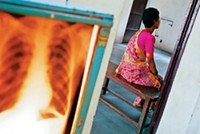Advertisement
Grab your lab coat. Let's get started
Welcome!
Welcome!
Create an account below to get 6 C&EN articles per month, receive newsletters and more - all free.
It seems this is your first time logging in online. Please enter the following information to continue.
As an ACS member you automatically get access to this site. All we need is few more details to create your reading experience.
Not you? Sign in with a different account.
Not you? Sign in with a different account.
ERROR 1
ERROR 1
ERROR 2
ERROR 2
ERROR 2
ERROR 2
ERROR 2
Password and Confirm password must match.
If you have an ACS member number, please enter it here so we can link this account to your membership. (optional)
ERROR 2
ACS values your privacy. By submitting your information, you are gaining access to C&EN and subscribing to our weekly newsletter. We use the information you provide to make your reading experience better, and we will never sell your data to third party members.
Business
Pharma Industry Declares War On Superbugs
Health: Drug and diagnostics companies call on governments to work with them against drug-resistant infections
by Ann M. Thayer
January 20, 2016
| A version of this story appeared in
Volume 94, Issue 4

Using the World Economic Forum in Davos, Switzerland, as their stage, 85 drug, biotech, and diagnostics companies and nine industry associations declared their intent this week to combat antimicrobial resistance. The group called for comprehensive action against drug-resistant infections.
Without an effective global effort, drug resistance could claim 10 million lives each year by 2050, according to the Review on Antimicrobial Resistance, an initiative supported by the U.K. government and the Wellcome Trust. The review is hosting the industry declaration on its website and will deliver its own report this summer.
For now, industry is calling on governments to “go beyond existing statements of intent and take concrete action, in collaboration with companies.”
To conserve antibiotics and reduce the occurrence of resistance, the group hopes for greater uptake of diagnostics for better prescribing. It wants to see “new and alternative market structures,” including funding to create markets and more favorable pricing. And it seeks incentives for investing in antibiotic R&D. For their part, companies say they will support appropriate use, R&D collaborations, and affordable access.
Only about 40 antibiotics are in development, and many don’t target urgent or drug-resistant threats. “That is not particularly encouraging given the needs,” says Elizabeth Jungman, director for public health at the Pew Charitable Trusts, which runs its own Antibiotic Resistance Project.
Jungman sees “complicated technical barriers to really rejuvenating the pipeline.” Another challenge is that only five of roughly 30 companies with antibiotics in development rank among the top 50 drug firms, she points out. More than 80% of the products in development come from small companies rather than the large firms that used to dominate the field,
Although the industry’s declaration speaks to major economic and scientific barriers, it doesn’t address the regulatory ones, Jungman adds. Overall, though, she’s encouraged. “The Davos declaration is a promising step,” she says, in showing recognition of the issues and a new focus on stewardship.
The declaration is open to new signatories and will be updated every two years to reflect developments around antimicrobial resistance.



Join the conversation
Contact the reporter
Submit a Letter to the Editor for publication
Engage with us on Twitter